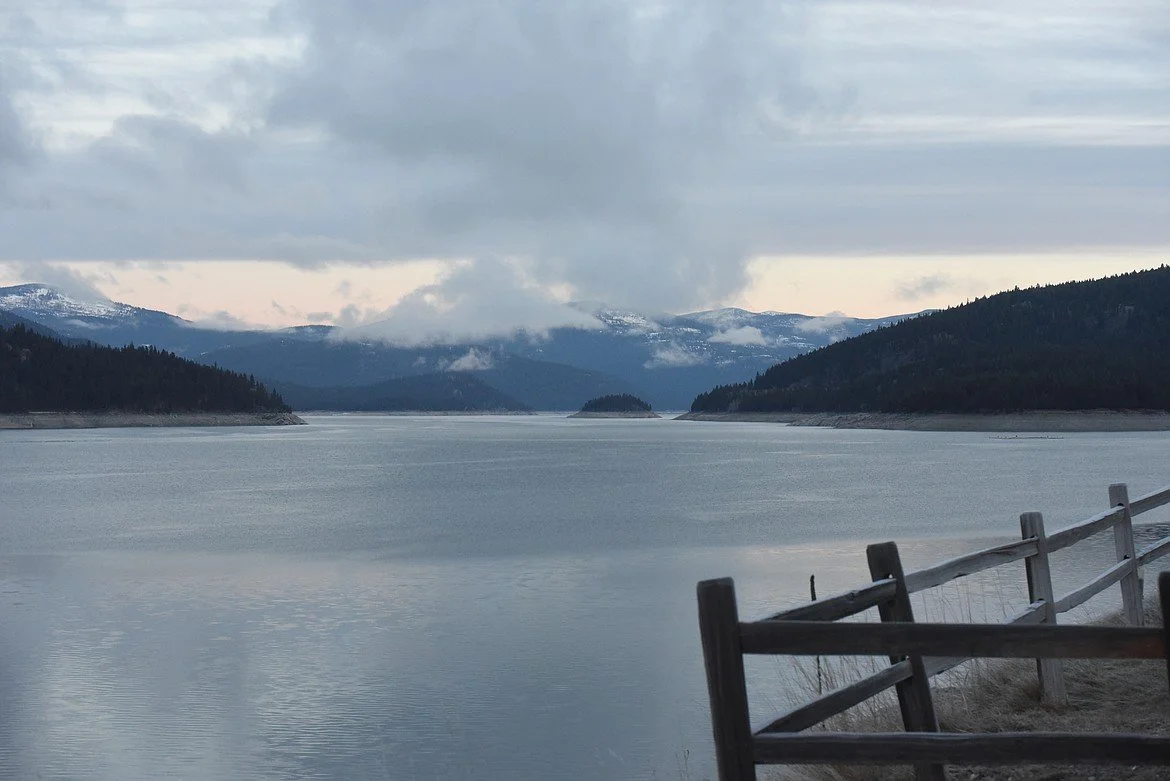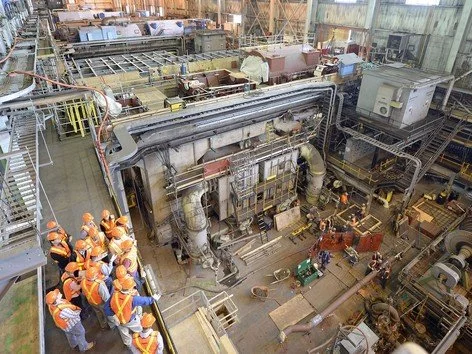A new American study has confirmed southeastern British Columbia coal mines are contaminating waters shared by Canada and the U.S., adding the miner’s attempts to remove selenium from wastewater aren’t making much difference to the amount flowing south. “It’s making a small dent,” said Meryl Storb of the United States Geological Survey, lead author of the newly published study.
$1.2B later, Teck Resources has barely put a dent in its pollution problems, documents show
As Teck Resources plans to distance itself from coal, government records show the mining giant remains a long way from solving the widespread contamination of local rivers and creeks — despite having already invested $1.2 billion in water treatment. Last year, selenium levels 267 times higher than what’s considered safe for aquatic life were detected in waters directly affected by Teck’s Elk Valley mines, according to an internal government meeting note obtained by The Narwhal through a freedom of information request.
B.C. fines Teck Coal $16 million for contaminating Kootenay waterways
A Canadian mining company has been fined more than $16 million for polluting waterways in B.C.'s East Kootenay. The B.C. Ministry of Environment has imposed three administrative penalties on Teck Coal Limited, a subsidiary of Teck Resources, citing the company's failure to have water treatment facilities ready by a required date to limit emissions of nitrate and selenium from its Fording River operations in the Elk Valley.
Indigenous communities call on U.S. to confront Canada’s toxic mining runoff at border
In a city of pinstripes and partisan power brokers, Mike Allison sticks out like a sore thumb. He’s in the wrong place — and he knows it. “I shouldn’t be here,” the denim-clad Indigenous elder suddenly says, fighting tears beneath the brim of his trademark cowboy hat. “I should be out on the land, working with my kids, teaching them values. I should be teaching them kids how to work with the environment, not fight for it.”
Doubts downstream
Walking the streets of Libby, Mont., on a hazy September day, it’s not uncommon to hear the cough of a local resident. The picturesque, blue-collar town about an hour southwest of the Canada-U.S. Border in Montana’s north was once bustling with jobs thanks to nearby vermiculite mines. The work helped line locals’ wallets with steady pay. And lined their lungs with toxic asbestos dust. Years of remediation have helped make the town of about 2,700 safe again following what government officials called the worst case of industrial poisoning of a community in American history. But residents are still struggling to rebuild after hundreds died, and approximately 2,400 have been diagnosed with asbestos-related diseases.
International commission asks Canada to join probe into contamination from B.C. coal mines
The agency that mediates disputes between Canada and the United States over shared waters is pleading with the federal Liberals to join an investigation into contamination from British Columbia coal mines before the Americans move on their own. In a May 13 letter, the International Joint Commission asked Prime Minister Justin Trudeau to commit Canada to collaborating with the U.S. on studying and finding a solution to selenium from Teck Resource’s Elk Valley mines that ends up in rivers and lakes south of the border.
Mining association objects to proposed federal coal effluent rules
Canada’s mining industry is pushing back against proposed tougher federal coal effluent rules, saying the draft regulations aren’t practical or backed by science. “We just do not see a path to achieving those limits,” said Pierre Gratton of the Mining Association of Canada, which expressed its concerns in a March 2 letter to Environment Canada. “(Environment Canada) has not articulated a justification for going further than the limits that have been agreed to.” The federal government has been trying to write effluent rules for coal since 2017, in response to requests from industry.
Teck opens third B.C. water treatment plant
British Columbia-based Teck Resources Ltd. announced Friday that a third water treatment plant is operational for the coal giant to treat selenium in the upper Fording River of Canada. The new facility has a daily capacity of treating up to about 5.3 million gallons of water. The company said its water treatment operations remove some 95 percent of selenium and nitrate from waters treated in the Elk Valley.
Feds bow to industry, provincial lobbying and weaken proposed coal rules
The federal government has bowed to provincial and industry lobbying in weakening proposed standards for coal mining effluent, critics say. A discussion document for draft regulations, released earlier this year, would double the amount of toxins — such as selenium — the mines are allowed to release and wouldn't apply to any mine that starts producing before 2027. Nor do they require companies to monitor overall environmental effects.
Lobbying weakened proposed federal coal effluent rules, critics say
The federal government has bowed to provincial and industry lobbying in weakening proposed standards for coal mining effluent, critics say. The draft regulations, released earlier this year, would double the amount of toxins —such as selenium — the mines are allowed to release and wouldn’t apply to any mine that starts producing before 2027. Nor do they require companies to monitor overall environmental effects. “Environment Canada got pushback,” said Bill Donahue, an environmental scientific consultant and former head of monitoring for the Alberta government. “It dramatically reduced the proposed standards in terms of their stringency.”
Read the Daily Inter Lake Article
Canada's largest coal company is challenging a new Montana water quality standard that aims to limit concentrations of toxic runoff from the company's mines in British Columbia as it travels across the international border into the Kootenai River and Lake Koocanusa. Teck Resources Ltd. this month filed a petition with the state Board of Environmental Review, part of the Department of Environmental Quality, which last year adopted a stringent site-specific water quality standard for the trace element selenium, a byproduct of coal mining that's been found at high levels in fish tissue and egg samples on both sides of the border.
Canadian Coal Company Petitions Montana to Weaken Water Quality Standard
The largest diversified mining corporation in Canada has petitioned environmental regulators in Montana to weaken a new water quality standard at the international border, where for years pollutants have been leaching from the company’s British Columbia coal mines into the Kootenai River basin, including Lake Koocanusa. The company behind the petition, Teck Resources Limited, is solely responsible for the release of mining contaminants into tributaries of B.C.’s Elk River, which enters Montana at the U.S.-Canada border before joining the Kootenai River.
6 Ways Nature-Based Climate Solutions are Tackling Climate Change in Canada
Due to climate change, rising sea levels combined with high tidal cycles and storm surges have led to an increased risk of flooding. To combat this, Moncton partnered with the Petitcodiac Watershed Alliance to implement rain gardens throughout the city. Rain gardens not only help remove pollutants from stormwater but also help increase stormwater capacity and reduce the overall flood risk. These kinds of solutions are extremely beneficial for Atlantic Canada where the risk of flooding is higher than the rest of the country.
Monitors doubt mining company's water fixes
As Teck Resources hopes to expand its mountaintop-removal coal mining in British Columbia, water quality monitors in Canada and the United States warn the company’s existing mines already cause significant ecological damage. In 2019, the company’s own research revealed that more than 90% of the cutthroat trout population had vanished in a 60-kilometer (37-mile) reach of the Upper Fording River near its mines around Sparwood, British Columbia. On March 26, Teck pleaded guilty to two counts of illegally discharging selenium and other pollutants into the watershed and paid a $60 million fine — the largest of its kind in Canadian history.
Coal company Teck fined $60M for contaminating rivers in southeastern B.C.
A Canadian coal-mining company faces the largest fine imposed under the Fisheries Act after pleading guilty to contaminating waterways in southeastern British Columbia. Teck Coal, a subsidiary of Teck Resources, is to pay $60 million after a judge on Friday agreed to a joint submission from Environment Canada and the company. "Teck did not exercise all due diligence to prevent the deposit of coal mine waste rock leachate into the Fording River from settling ponds," federal prosecutor Alexander Clarkson, reading from an agreed statement of facts, said in B.C. provincial court.
Alberta promises close watch on new mines but cuts oversight of coal-polluted rivers
Alberta government documents show repeated cuts to environmental monitoring despite contaminants in some waterways that exceed thresholds that are supposed to trigger increased scrutiny. The province's 2019 five-year monitoring plan shows stations on two rivers and a creek polluted with selenium from coal mines were mothballed. That was despite more than two decades of readings that Alberta Environment guidelines suggest should have led to closer attention.
Contaminant from coal mines already high in some Alberta rivers: unreported data
The province's plan for large-scale expansion of the industry is fueling widespread criticism that includes concerns over selenium pollution. The data shows that same contaminant has been found for years at high levels downstream of three mines and never publicly reported. The findings raise questions about Alberta Environment, said a former senior official who has seen the data. "There were lots of [selenium] numbers and it was consistently above the water quality guidelines and in many cases way higher," said Bill Donahue, the department's one-time executive director of science. "Why did Alberta Environment sit on these data for easily the last 10 to 15 years?"
Alberta government wants to rewrite the water use rules along eastern slopes of Rockies
The Alberta government wants to rewrite the rules on water use along the eastern slopes of the Rockies as part of its economic recovery plan, including a push for new coal developments in the area. Water use is highly restricted in southern Alberta due to concerns about supply, and new water licences cannot be issued, they have to be purchased from existing licence holders on the open market. The new plan put forward by the Alberta government would affect water pulled from the Oldman watershed above the dam.




















